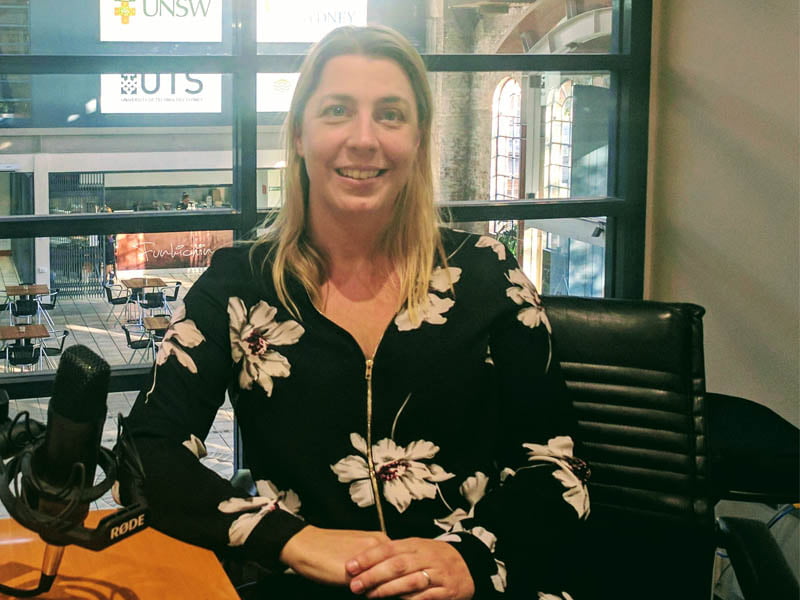Cicada Innovations is the jewel in the crown of Australian incubators, but you won’t find it on most maps of the Aussie startup ecosystem. It is the most successful and the longest-running. As a proof-point, its resident companies have raised more than $100 million in the past 12 months.
Cicada is a weirdly interesting character in the Australian innovation ecosystem, on a bunch of different levels. First, it’s a deep-tech incubator that’s all about the science. In a local startup community obsessed with quick-to-market platforms and apps, that’s weird.
It is also structured as a for-profit business, at a time when every man and his two dogs are structuring themselves as a not-for-profits. And it’s owned by four universities. And it’s still in business after 17 years (that is, it’s profitable.)

The combination of all of these things is weird. But it is stranger still that its success has flown consistently under the radar at a time when government is openly searching the world for innovation models that will improve Australia’s research translation performance.
I spoke recently with Cicada Innovations CEO Petra Andren about the things that have helped make Cicada (formerly ATP Innovations) successful, and the things that are a challenge. Coincidentally, we were buying our pre-interview coffee just as the Prime Minister Malcolm Turnbull was announcing via press conference the scrapping of the 457 visa program.
In this podcast, you will sense some frustration. Ms Andren rails against the narrative that businesses can’t tap into universities, that it’s all too hard. And the narrative that there is no adequate commercial route to market for university-based research.
In 2014, as ATP Innovations, Cicada won a global Incubator of the Year Award from the US-based National Business Incubation Association, an association of 2600 incubators around the world. The award is judged by peers and based on a bunch of metrics around things like the number of patents filed, number of jobs created, capital raised, and the ability to take new technology to market.
In other words it is an award for things that Australians are really bad at. And yet we have this under-the-radar exception to the rule.
“That awards is something we should be really, really proud of because it means that in Australia we have a model that works when it comes to taking deep technology – advanced technologies – to market,” Ms Andren said.
“We keep hearing that it’s not working [in Australia]. But here we have a model that clearly works, but has gone completely unrecognised. Which is obviously a shame.
“I would encourage government to come and have a look at this model, rather than going all over the world looking at things and trying to cut and paste it here.
“We have a model that works in Australia. Why not have a look at that and try to replicate that in other states?”
Cicada is owned equally by the University of Sydney, the University of NSW, the Australian National University and the University of Technology, Sydney. The close ties to these research institutions gives the residents expedited access to university smarts and equipment.
But the universities are only one route to getting into Cicada. The incubator also takes corporate spin-offs, walk-in pitches, and companies that come through one of the four accelerator programs that cycle quarterly through the space (Startmate has run a program from within the incubator for years, the Sydney University Incubate program also uses the space, and Cicada runs two programs of its own focused on MedTech and AgriTech.)
Cicada is industry agnostic. It takes companies across a spectrum of different sectors and technologies. It will not accept two companies that compete with each other, but does encourage clusters of firms that might be symbiotic across a niche.
The common theme is that the companies are based on deep tech, defined as something that that’s not easily replicated. They are companies that “take a bit longer” to mature.
“These are things you can’t easily whip up on your kitchen table or garage,” Mr Andren said.
“These are companies that have some kind of sustainable competitive advantage – whether it’s through a competitive intellectual property position or trade secret know-how – something that cannot be easily copied.”
The Global Incubator of the Year award was in large part a recognition of Cicada’s “sustainable” business-model.
“We don’t get government funding. We aren’t funded by the universities. We have a model where we take 5 per cent equity in the companies that come in here. That’s the upside for us – everything else run’s at cost,” she said.
“The upside for us is when one of our companies is successful. Having a for-profit model means our [incubate] companies success is our success.
“The advantage [of being a for-profit] is probably in how you’re incentivised. We’re not extremely profitable … Really, if you are running an incubator and you manage to be sustainable, that’s GOLD: It means you’re doing an awesome job.”
The deep tech nature of the incubators has not attracted Australian investors in the numbers Ms Andren would have liked. Of the $100 million invested in Cicada incubatees in the past 12 months, most comes from outside of Australia (and most of that from Europe and Asia, as opposed to America.)
“Australian investors still tend to shy away from the type of companies that we work with here. The money that’s in Australia right now are all trying to chase the same kinds of deals – they are all chasing the digital companies, the quick-to-market companies,” she said.
And that is a going to be a problem for the ecosystem.
Do you know more? Contact James Riley via Email.

